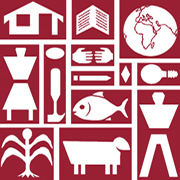CIE faculty and students enjoyed a provocative and stimulating discussion with Dr Yong Zhao, Foundation Distinguished Professor at the School of Education, University of Kansas, at an informal discussion in January 2017.
 Dr Zhao’s work focuses on the implications of globalization and technology for education. One of the foundational ideas he raised during the hour-long discussion was how recent education reforms, such as “college readiness” or efforts to address problems such as “achievement gaps”, are still based on a system that perpetuates existing societal structures which favour the elite and a single path to success. He believes that a paradigm shift is needed in order to achieve true social mobility and change.
Dr Zhao’s work focuses on the implications of globalization and technology for education. One of the foundational ideas he raised during the hour-long discussion was how recent education reforms, such as “college readiness” or efforts to address problems such as “achievement gaps”, are still based on a system that perpetuates existing societal structures which favour the elite and a single path to success. He believes that a paradigm shift is needed in order to achieve true social mobility and change.
In his view, each learner should be treated as an individual with their own talents and aptitudes. He advocates a “strengths-based” approach that celebrates uniqueness, in contrast with the deficit model reinforced by traditional assessment and efforts to produce learners who conform to some “perfect profile for success” set by the curriculum.
Some implications of his model include a product-oriented curriculum where learners “create works that matter” and identify “problems that are worth solving.” Dr Zhao gave an example of a first grade class in Georgia, where kids from disadvantaged homes worked on a project to help their community.
“The change is to trust the kids”, he said, adding “Don’t let adults filter opportunities for children.” Children should be allowed to develop their own pathways and ideas. The aim is for students to gain confidence and develop an entrepreneurial mind-set, the belief and the willingness to shape their own futures.
In terms of systemic change, Dr Zhao believes that “innovation cannot be implemented—it needs to grow organically”. To harness innovation in development contexts, it is important to build platforms for sharing creativity, to maintain a flat infrastructure with many opportunities for collaboration and shared learning, rather than creating elaborate systems of accountability.

Another interesting observation was that “education ideas have side effects”—like medical treatments, educational interventions may have negative consequences as well as positive outcomes. Education researchers and experts should focus on inquiry and asking questions about the current situation rather just providing answers based on past experience.
Dr Zhao gave examples from his own childhood in rural China and from education systems in the U.S., China and other countries. CIE faculty and students also raised questions and shared comments from their own experiences in different contexts around the world.
Dr Zhao’s books include Counting What Counts: Reframing Education Outcomes (2016), Who’s Afraid of the Big Bad Dragon: Why China has the Best (and Worst) Education System in the World (2014), Catching Up or Leading the Way: American Education in the Age of Globalization (2009) and World Class Learners: Educating Creative and Entrepreneurial Students (2012).
